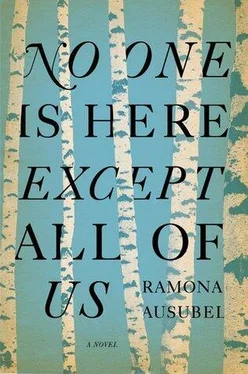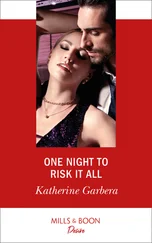In the morning Solomon went out into the wheat and gathered stalks of it, brought it back to me. Together we opened the shells to pull impossibly small bodies of meat. We did not eat them one by one, but saved them in a pile, waited until we had enough, so when we ate it actually felt like eating. We chewed every bite until it was nothing. We worked and our fingers were striped with cuts. Today this was enough.
In the afternoon we tried to sleep. The baby talked noise into the canopy of whatever trees we found. Oak, maple, pine, beech. He seemed happy. He was with his mother and his brother, and his father still loved him someplace, of course.
In the evening we peeled sheets of bark off the tree and soaked them in caught water. Once soft, we ate the bark, dark tasting and sponged.
“We are doing fine,” I whispered into the dark.
“I know,” Solomon said.
“We are doing fine,” I said again.
“I know,” he repeated.
“We are doing fine,” we said together.
I laid the baby, asleep now and wrapped in a blanket, on the leafed ground.
“Let’s look at the stars,” I told Solomon, and we walked out into a treeless place, out into the tall whispers of grass. We tipped our heads back and tried to find ourselves on that map. “Which ones do you know?” I asked.
“I don’t recognize these,” he said. “These stars are different.”
Above us, the stars of another season rolled along. What was slapped here was unrecognizable, the work of a different God.
“Let’s name them then,” I said. “Let’s get to know them.”
“But they aren’t our stars. Our stars are the ones on the barn.”
“These are ours too now. This is our temple.”
We traced a horse constellation, a river, a house. We traced a tree and a leaf. “There’s a rabbit whose job it is to look after the birds,” Solomon said, and I nodded though I did not see.
“What about this one as a man holding a sack?” I asked.
“No, not that. It’s a woman holding a sack.”
“All right, a woman. Where is she going?”
“She’s going home,” he said. “God will take care of her there.”
“What if God is busy doing something else and forgets?” He did not take notice of my faithless question. Little believer, unbending. “What does she have in the sack?” I asked.
“It’s her children in there, asleep. They were tired of walking.”
“How far do they have?”
“Not far. They are almost there.”
I tried to point out a row of stars that reminded me of an arrow but Solomon did not answer me. I tried to show him one that looked like a face but he did not answer.
“Are you asleep?” I asked him.
“Of course not. Where did we come from?”
“We came from our village, Zalischik. We lived in a house near a well. We had two sturdy pots, three stable chairs, a woodstove, beds, more families than we could have hoped for.”
“What else?”
“We had your father. He will be back. We will be back.”
“Tell me about everything,” Solomon said.
“There was a river where the mud was thick and dark. Willows lived at its edges. In winter it was quiet and cold, in summer it was loud and cold. You had to walk through a field of wheat like this and a field of cabbage to get there. Your grandfather Vlad worked in the cabbage field. He was a very fast picker. He loved us.”
“Remember the time Father and I discovered a cave on the bank of the river and it was filled with magic foods that replaced themselves whenever we ate one?”
“Sure, I will remember that.”
“I want to nurse,” he said, “just a little bit.”
I opened my dress up, brought him close. I knew the milk would quiet if I did not eat enough, but I let him suck it away, let him drink what belonged to his brother. He drank me down. I felt the mechanism of his swallow against me. I felt the warmth of his cheek against me. I felt a drop of milk slipper down along the curve of my breast and fall off.
“Remember the time we forgave each other for everything?” I asked. Against my chest, Solomon nodded yes.
The birds had no idea that it was time to be quiet. They exploded the mornings with their music. They had so much to ask for. I, awake before my boys, waited while a sparrow hopped along, pecking. I waited until it crossed in front of me, but when I went to grab it, it flew. Its wings had it high and safe above me.
Already, time was losing us. It felt as if we had never had a home and also as if we had left it only in the last moments. It felt as if each sleep lasted weeks, leaving us with colder and colder mornings. Our feet wept with blisters and the corners of our eyes were scabbed with dirt. Our bones, tucked under threadbare blankets of muscle, rattled and shook. Above my sons and me, the stars slid along and the moon returned a new shape each night, and no one came looking for us. No one caught us or saved us. The days did not count themselves off but circled, dizzy and lost. It made sense to keep track of time only if there was a known end to the journey, which there was not. We might have been on day twelve of twelve thousand, or day thirty of one million. I let go of the idea of time, of progress, of beginnings and endings, and tried to pay attention only to one fact: We were alive, we were alive, we were alive. We were alive, and the little red needle kept pointing us onward.
Not one drop of rain fell from the sky. The earth and the sky and the trees and the stones and the path were dead dry.
There was a kind of stillness in the days after my family and I were gone. The villagers washed the dishes in warm water and fed the animals scraped-off leftovers.
Clouds poured forth and fear curdled all other emotions, but there was bread because the baker made it, there was water because the wives drew it up from wells, and there was meat because the animals were still killable — the animals were drained of blood if someone drained them. There were many things for the villagers to be grateful for.
Now no one liked to be outside in the day’s revealing light. The street felt as exposed as a sliced-open wound. The man who captured Igor became a giant. The villagers imagined that I was lost now in a hot, dry desert, my flesh burning away. Who knew what was next for the people, what curses remained? Just to press tiles on the ceiling — to eat something each day, to keep track of the dangers and hopes — was almost more than they could bear. They hated to leave the barn.
Both sets of my parents recounted my birth and childhood, two separate stories. Perl remembered that it was a bright morning when I was born and I had opened my eyes to look around. Kayla remembered that it was a wet, shimmering evening and I had cried so hard my throat must have been torn up.
“Has she told herself into a better story?” they kept asking.
The banker’s children reminded the others about their brother Igor and the villagers remembered him, too. “He was an amazing sleeper,” an old man said. No one denied this.
The wives touched the arms of their husbands and tried to tell them in this way that they were watching. Sunlight through that single bullet hole in the wall of the barn drew a bright, dusty line across the room. The villagers ducked to cross it, as if it might be sharp enough to slice them.
The baker recruited hands for kneading. In the bakery, the air was yeasty and alive. Did they discuss what they imagined was coming? Did they wonder if it would be better to run or to stay? When they kneaded the bread, and their hands were warmed by the motion of pressing and rolling and the dough was warmed by their hands, were they trying to remember what it was their grandmothers looked like long ago, before any of these people were alive? Before this world existed?
Читать дальше












